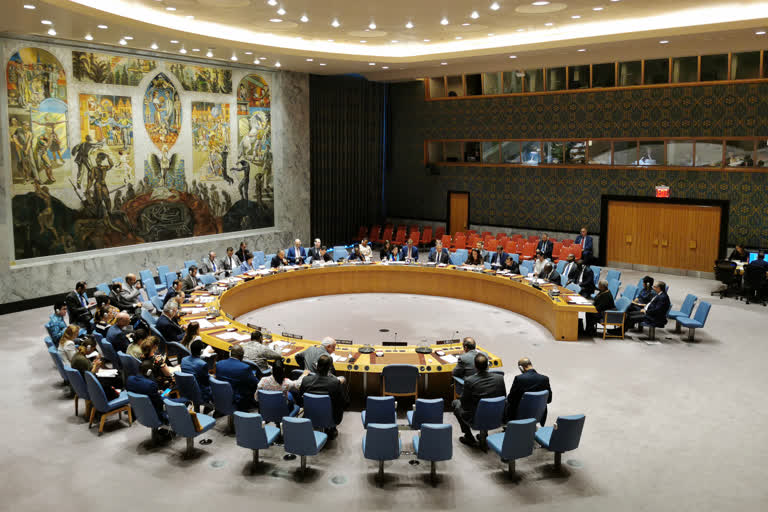Hyderabad:The world community has mostly accepted Kashmir conflict as a bilateral issue between India and Pakistan. As the tension between the two countries are escalating following the modification of Article 370 and bifurcation of Jammu Kashmir and Ladakh into union territories, we look at the involvement of United Nations (UN) in the long-standing Kashmir dispute.
The UN involvement in Kashmir lasted 23 years. Following the signing of Shimla Agreement, which states a peaceful solution for the Jammu and Kashmir issue, the UN was kept out of the loop, paving the way for bilateral level efforts to end the dispute.
The issue was first taken up at the UN convention of 1948, when India had claimed that all territories of then princely state of Jammu and Kashmir 'legally' belonged to India by virtue of its treaty of accession.
However, Pakistan accused India of annexing Kashmir and denied the claims of supporting the a 'tribal invasion' in the princely state.
The resolution adopted by the UN Security Council asked both the nations to ease the tensions and exercise restrain. The body also passed 'Resolution 39,' thereby creating the United Nations Commission for India and Pakistan (UNCIP) to investigate and mediate between both the nations.
Later on, many mediation efforts undertaken by the UNCIP failed to reach an amicable solution. Different suggestions, including complete demilitarisation of Kashmir, were rejected by India.
After the failure of UNCIP, a single representative was appointed to help reach a solution. Owen Dixon became the representative in 1950 and his set of proposals including a 'regional plebiscite' to vote definitely either for an accession with either India or Pakistan failed.
Besides, India has always maintained that Shimla Agreement effectively overrides all prior UN resolutions on Kashmir, which meant that Dixon proposal was the last practical efforts by the UN to end the dispute.
